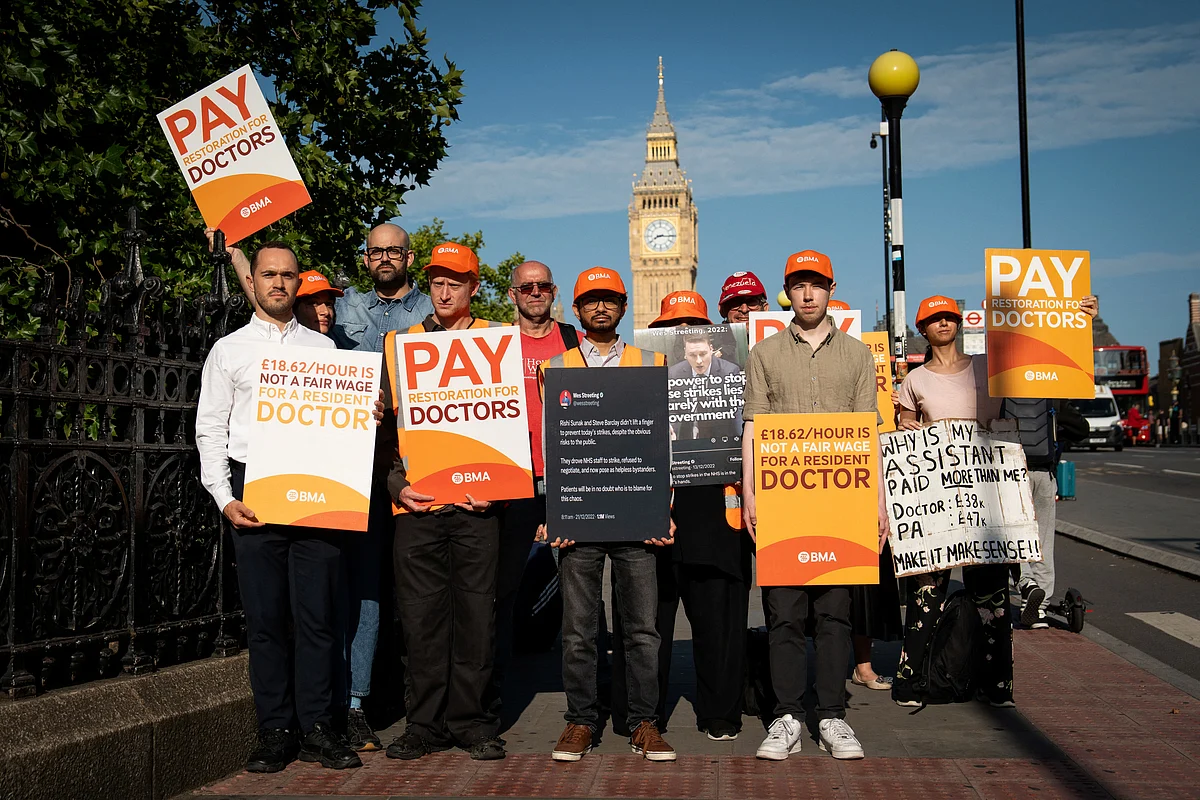Labour Government Faces Critical NHS Test as Junior Doctors Launch Five-Day Strike
In a significant challenge to Keir Starmer's Labour government, thousands of junior doctors have begun a five-day strike after negotiations failed. The industrial action highlights growing tensions over NHS pay and working conditions, testing Labour's ability to manage public sector relations.

Junior doctors on picket lines outside UK hospitals as five-day strike begins
Labour's Public Sector Challenge Intensifies as Junior Doctors Strike
In a critical test for Keir Starmer's Labour government, thousands of junior doctors across the United Kingdom initiated a five-day strike on Friday, marking a significant escalation in the ongoing dispute over NHS pay and conditions.
The Breaking Point
Despite Labour's earlier success in negotiating a 22.3 percent pay rise over two years, the British Medical Association (BMA) argues this fails to address the fundamental issue of long-term pay erosion. Junior doctors maintain their remuneration has declined by more than 21 percent in real terms over two decades.
'We're not working 21 percent less hard so why should our pay suffer?' assert BMA junior doctors committee co-chairs Melissa Ryan and Ross Nieuwoudt, highlighting the growing frustration among medical professionals.
Labour's Delicate Balance
The industrial action presents a complex challenge for the Labour government, which must balance public sector wage demands with fiscal responsibility. Health Minister Wes Streeting's position that the government 'cannot afford to go further on pay this year' reflects this tension.
Prime Minister Starmer's public appeal in the Times newspaper emphasizes the potential impact on patient care, warning that the strikes will 'cause real damage' to the NHS. This stance marks a significant shift from Labour's traditional alignment with union interests.
Broader Implications for Public Sector Relations
The dispute occurs against the backdrop of Labour's recent successes in resolving other public sector pay disputes, including a 15 percent deal with train drivers. However, the doctors' strike suggests that managing public sector expectations may prove more challenging than initially anticipated for Starmer's government.
Impact on NHS Services
The five-day action threatens to exacerbate existing pressures on the NHS, with previous strikes having resulted in thousands of cancelled appointments and delayed treatments. This latest industrial action could further strain an already struggling healthcare system.
Looking Forward
The resolution of this dispute will likely set a precedent for Labour's approach to public sector pay negotiations and its broader relationship with unions. It also tests the government's ability to maintain public services while managing fiscal constraints.
Thomas Reynolds
Correspondent for a London daily, specialist in British foreign policy and transatlantic issues.
